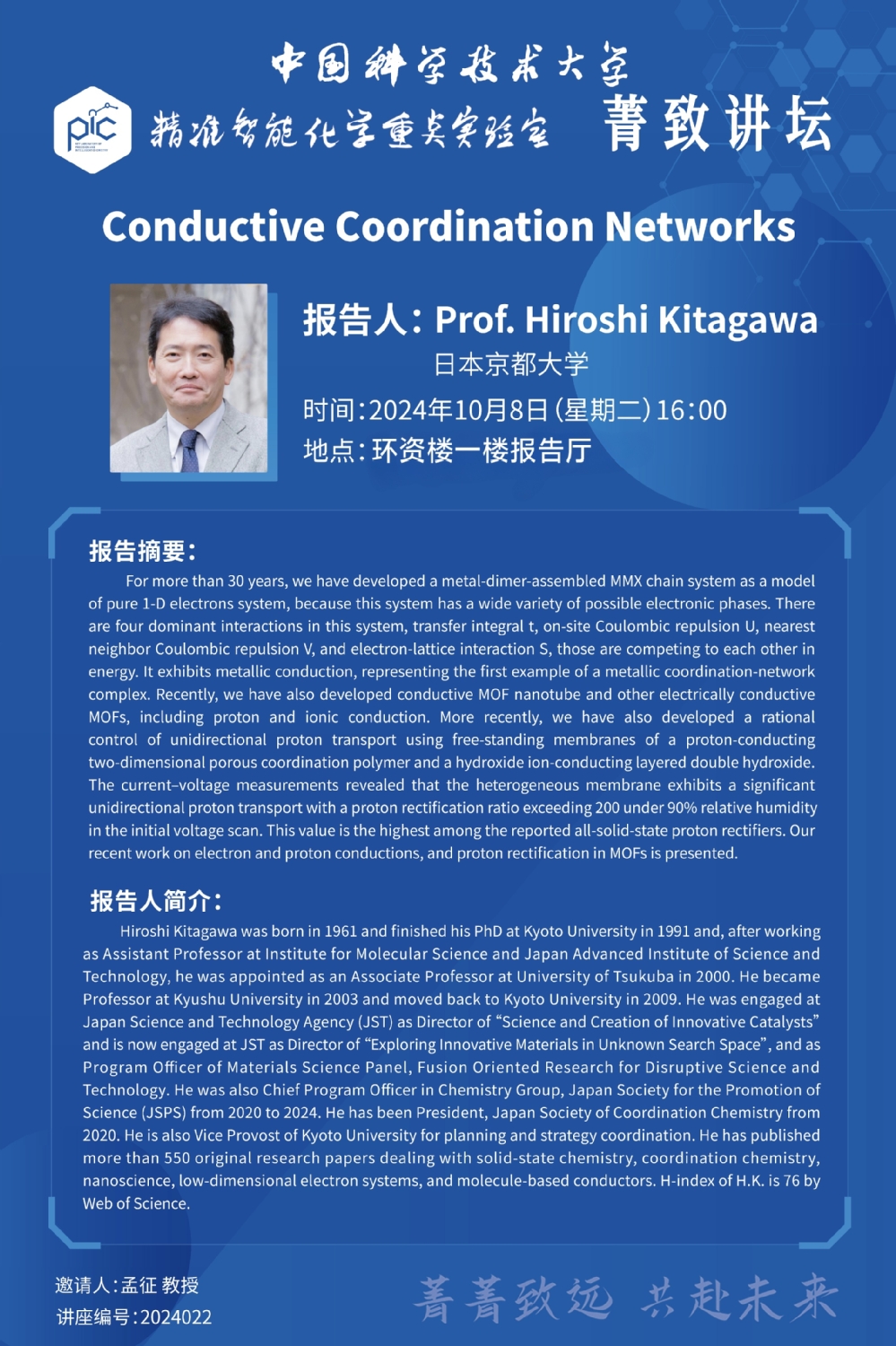报告题目 | Conductive Coordination Networks |
报告人 | Prof. Hiroshi Kitagawa |
报告人单位 | 日本京都大学 |
报告时间 | 2024年10月8日(星期二)16:00 |
报告地点 | 环资楼一楼报告厅 |
主办单位 | 精准智能化学重点实验室 |
报告摘要 | For more than 30 years, we have developed a metal-dimer-assembled MMX chain system as a model of pure 1-D electrons system, because this system has a wide variety of possible electronic phases. There are four dominant interactions in this system, transfer integral t, on-site Coulombic repulsion U, nearest neighbor Coulombic repulsion V, and electron-lattice interaction S, those are competing to each other in energy. It exhibits metallic conduction, representing the first example of a metallic coordination-network complex. Recently, we have also developed conductive MOF nanotube and other electrically conductive MOFs, including proton and ionic conduction. More recently, we have also developed a rational control of unidirectional proton transport using free-standing membranes of a proton-conducting two-dimensional porous coordination polymer and a hydroxide ion-conducting layered double hydroxide. The current–voltage measurements revealed that the heterogeneous membrane exhibits a significant unidirectional proton transport with a proton rectification ratio exceeding 200 under 90% relative humidity in the initial voltage scan. This value is the highest among the reported all-solid-state proton rectifiers. Our recent work on electron and proton conductions, and proton rectification in MOFs is presented. |
报告人简介 | Hiroshi Kitagawa was born in 1961 and finished his PhD at Kyoto University in 1991 and, after working as Assistant Professor at Institute for Molecular Science and Japan Advanced Institute of Science and Technology, he was appointed as an Associate Professor at University of Tsukuba in 2000. He became Professor at Kyushu University in 2003 and moved back to Kyoto University in 2009. He was engaged at Japan Science and Technology Agency (JST) as Director of “Science and Creation of Innovative Catalysts” and is now engaged at JST as Director of “Exploring Innovative Materials in Unknown Search Space”, and as Program Officer of Materials Science Panel, Fusion Oriented Research for Disruptive Science and Technology. He was also Chief Program Officer in Chemistry Group, Japan Society for the Promotion of Science (JSPS) from 2020 to 2024. He has been President, Japan Society of Coordination Chemistry from 2020. He is also Vice Provost of Kyoto University for planning and strategy coordination. He has published more than 550 original research papers dealing with solid-state chemistry, coordination chemistry, nanoscience, low-dimensional electron systems, and molecule-based conductors. H-index of H.K. is 76 by Web of Science. |

